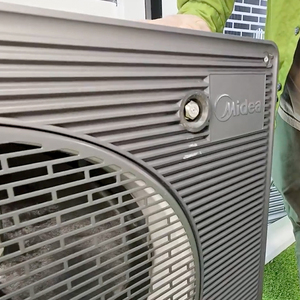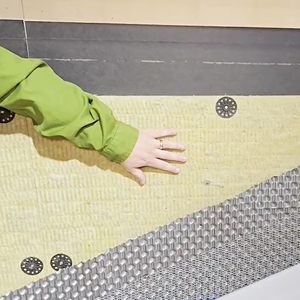Just had a final inspection on a brownstone townhouse I’m doing in Harlem NY and the only objection the inspector had was that the electrical room, located in the very front of the building, 1 1/2 stories below street level, which houses the gas meter, didn’t have an air vent to the outside. He told me to run the largest diameter duct I could to the facade of the building, which is basically just above the meter. No fan is needed, according to him. I have no problem doing this, I understand the importance of not allowing potentially leaking gas to build up, especially in an electrical room, but isn’t this going to end up being one 8″ round conduit of cold air into my cellar in the winter? What do you do to keep that from happening, short of juicing up the radiant heat I’m so proud of myself for putting in to save the environment?
Discussion Forum
Discussion Forum
Up Next
Video Shorts
Featured Story

Low-e storm panels improve the energy efficiency of these old sash windows without changing their classic look.
Featured Video
Video: Build a Fireplace, Brick by BrickHighlights
Fine Homebuilding Magazine
- Home Group
- Antique Trader
- Arts & Crafts Homes
- Bank Note Reporter
- Cabin Life
- Cuisine at Home
- Fine Gardening
- Fine Woodworking
- Green Building Advisor
- Garden Gate
- Horticulture
- Keep Craft Alive
- Log Home Living
- Military Trader/Vehicles
- Numismatic News
- Numismaster
- Old Cars Weekly
- Old House Journal
- Period Homes
- Popular Woodworking
- Script
- ShopNotes
- Sports Collectors Digest
- Threads
- Timber Home Living
- Traditional Building
- Woodsmith
- World Coin News
- Writer's Digest


















Replies
Just do what he says. Maybe in the winter you can cover it. I didn't say that did I? That could be dangerous if you have a gas leak.
My basement doesn't have a direct vent, but hasn't blown up yet. My gas meter did develop a leak and had to be replaced at my cost since it was inside the house.
Can you insulate the walls and ceiling (and maybe the floor) of the electrical room so that, thermally speaking, it becomes part of the exterior of the building?
I would ask if a fan is acceptable to the inspector, and if so, use a fan. That way you ventilate the space with the inleaking air that is coming into the house anyway, you force vent any gas that the regulator releases (all regulators release gas from time to time, this is not about leakage), and you have no uncontrolled vent that will pass air in whichever direction it chooses, depending on the wind and the kicthen exhaust hood, the water heater or the boiler, etc...
If you use a simple, gravity vent, insulate the duct and install a backdraft damper (a one-way valve for ducts) close to where the vent duct exits the building.